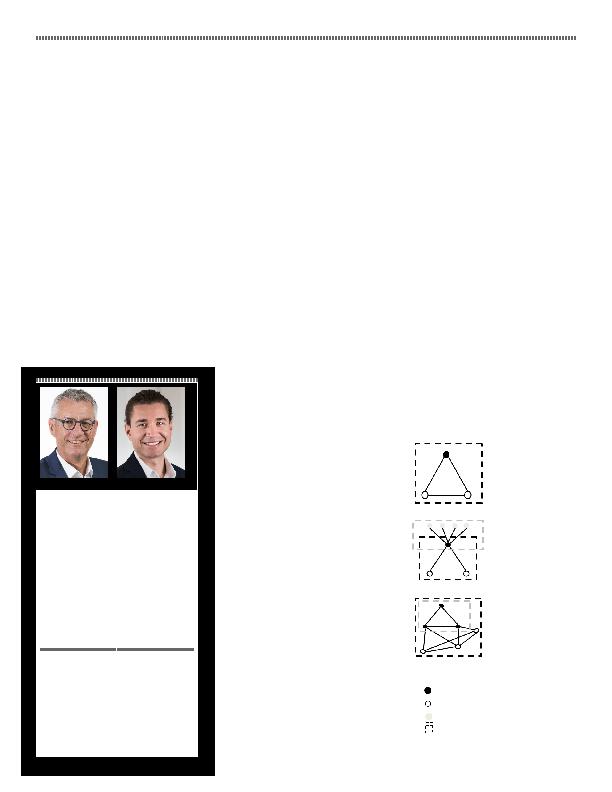
in the next decade. Switzerland, which is
home to a vibrant blockchain community,
is in the center of this trend. Therefore, we
will take a closer look at ecosystems and
evaluate possible legal forms according to
Swiss law.
competitors, for decades, competition was
and Brandenburger published their
bestseller "Co-opetition" (cooperation
and competition).
shift. Nowadays, we are moving gradually
in this direction, driven by changing
customer expectations and technological
developments, such as blockchain,
artificial intelligence and the internet
of things. Interdisciplinarity is the new
challenge and companies are realizing
that they have to rely on skills outside
of their own core competence in order to
comply with increasingly complex value
propositions. The ability to cooperate in
a goal-oriented manner will be a decisive
factor of success in the future.
For a long time, however, it was not
known how such forms of cooperation could
be shaped in order to promote innovation.
Ecosystems provide a methodical approach
to solving this problem.
community that jointly develops products
or services that a company alone could
not offer. For an ecosystem to provide a
product or service, those involved must
contribute their data, skills and networks
and align them with each other. In this
respect, ecosystems differ from other forms
of economic relationships, such as supply
chains.
In ecosystems, the focal value
proposition and the incentive system that
motivates the actors to get involved are
decisive. This always requires at least
one focal firm. The focal firm has the task
the focal value proposition, so that the
synergies and benefits of the ecosystem,
such as access to information, more
efficient business processes and reduced
transaction costs, can be exploited. From
a legal point of view, it is of particular
interest which legal entities are most
suitable to organize an ecosystem in an
effective and efficient way.
illustration of three possible basic
ecosystem concepts. The figures serve to
clarify and visually orient how ecosystem
concepts differ in their structures and
interactions:
Suter Howald Attorneys at Law and co-founder
of LAWSHIFT LLC. His main areas of practice
are corporate, contract and insurance law, as
well as tech law, with a focus on blockchain,
cryptocurrencies, ecosystems and LegalTech.
Attorneys at Law. His main area of practice is tech
law with a focus on blockchain, cryptocurrencies,
ecosystems and LegalTech.
Stampfenbachstrasse 52
Postfach
Zürich, Switzerland CH-8021
dominik.obrist@suterhowald.ch
suterhowald.ch